Transitioning from traditional over-the-counter deodorants to all-natural, organic deodorant is often a stink process of trial and error until you find the right option.
You want to live a healthy, organic lifestyle and avoid subjecting you or your children’s delicate skin to toxic or downright dangerous chemicals. But you don’t want to become known as the stinky family around town or walk around with constantly sweating stains on your clothes.
TRUTH BOMB:
You’re
Already killing it!
If You Were More Consistent With Your Wellness Routine, You’d Be Unstoppable.
Lucky for you, we’ve already done the research! With these best natural and organic deodorant options, you can find the right natural choice for your entire family.
Whether you sweat heavily, have vegan and cruelty-free preferences, need a product for sensitive skin, or simply want an unscented deodorant that works well, the list below includes only the best of the best.
Although they are not antiperspirants, which block your sweat glands, they still work. Each is naturally made to fight bacteria and odor throughout the day and with natural powders like aluminum free baking soda, arrowroot, corn starch, or kaolin clay that absorb wetness. Learn about the harmful side effects of using over-the-counter deodorants and find the perfect natural ingredient rich choice for your skin.
The Issue with Over the Counter Deodorants
Conventional deodorants and antiperspirants that are sold over the counter may be convenient and cheap to buy. However, they come with dangerous ingredients and hidden harmful side effects.
Heavy Metals
Heavy metals like aluminum are found in a range of products we use every day, and evidence suggests that aluminum adversely influences the breast epithelial cells and causes serious issues like breast cancer (2).
In a study where 437 women with breast cancer were surveyed, researchers found that the more frequent and younger the age a woman begins shaving and using antiperspirants the more likely a diagnosis of breast cancer at an earlier age (1).
These lifestyle habits, especially when combined, play a huge role in breast cancer. Although the exact cause is not completely clear, personal care products that contain aluminum can be dangerous. Humans are exposed to aluminum every day through diet, antiperspirants, antacids, and even vaccinations (2).
Parabens
Parabens are preservatives found in many cosmetics, foods, and pharmaceutical products around the world, which means most of the human population is exposed to these toxins daily. The type of beauty products you use may contain parabens and it is important to consider the overall burden on the body (3).
Some studies have found parabens present in breast tumors, showing a link between breast cancer and concentrations of parabens. Although small concentrations are said to be harmless, there needs to be more research (3).
Synthetic Scents
Perfume and other synthetic fragrances are known to cause allergic reactions in many people (4), but they are still used in a wide range of products that are sold commercially. They also contain harmful ingredients like phthalates and other toxic ingredients that cause disease, weight gain, hormone imbalances, and so much more.
Synthetic scents are used to make various cosmetic products smell good, from body lotions and colognes to deodorant and perfumes. And they are usually vaguely listed as “fragrance” or “parfum” (4). These ingredients are dangerous.
Mysterious ingredients like this are harmful to your health in a variety of ways, and these man-made scents are linked to a wide range of health issues, from minor headaches, nausea, dizziness, and brain fog to asthma, cancer, kidney damage, child autism, birth defects, and more (6,8).
Phthalates
Phthalates found in cosmetics can be masked as “fragrance” on the ingredient list. This is already troublesome, as many consumers never really know what’s in the products they buy. Phthalates have been linked to poor lung function, sperm issues, and cancer. They are also known to act as hormone disruptors becoming a huge concern for pregnant women (5).
Although phthalates are a concern for all ages, they have also been linked to developmental disorders in newborns, particularly among boys (4) and adolescents who spray too much Axe body spray. There is also a huge association in research studies between maternal prenatal exposure to phthalates and your child’s IQ when they reach the age of 7, where women with more exposure had children with lower IQ scores (9).
If you want to live a long and healthy life, skip the synthetic smells. Even the Breast Cancer Fund says the best way to prevent cancer is to avoid using synthetic fragrances (7).
Some Other Chemicals to Watch Out For
There are chemicals that are also used in organic products as well as over-the-counter cosmetics and cleaning agents that are more harmful than they seem. If you are ever unsure which chemicals are harmful, the Environmental Working Group’s database can help. Look out for the following ingredients:
- Triclosan – Exposure to this toxin is linked to a range of health effects, from decreased sperm count to the development of cancer (11).
- Propylene Glycol – A moderately-low hazard, this chemical is often used as a skin conditioning agent. It has been associated with allergic dermatitis and contact urticaria in tiny concentrations as low as 2% (10).
- Benzalkonium Chloride – A preservative, benzalkonium chloride is especially dangerous for people with skin conditions like eczema or asthma. Regular use of products containing antimicrobials like this has been shown to cause resistant bacteria (10), which isn’t what you want in a deodorant.
The Main Danger of Conventional Deodorants and Antiperspirants
Not only do the harmful chemicals found in deodorants foster a myriad of diseases and cause detrimental effects in unborn fetuses and young children, but these toxins also mess with your body’s natural bacteria. Traditional deodorants and antiperspirants rid your pits of the bacteria that causes odor, messing with your body’s microbes (12) which are responsible for regulating your body’s level of natural bacteria.
While this means the antiperspirants are doing their job, this isn’t really the best way to go about it. Studies have also shown that a variation in microbes and the types of bacteria on your body is healthy (13). So, if you sweat a lot and find yourself buying clinical strength antiperspirants, you may do better with a natural deodorant that doesn’t contain aluminum or fragrance.
Antiperspirants may be a short-term solution for your excessive sweating, but over time they also increase certain types of bacteria known to cause foul-smelling armpits (14). The less bacteria you kill with the aluminum compounds found in these antiperspirants, the less odor you will produce.
Ways You Can Eliminate Harmful Deodorants from Your Routine
The best way to eliminate your risk is to switch to a non-toxic deodorant. Check out the list of ingredients on the products you buy and keep a special eye out for those mentioned above that are known to cause harmful effects for you and your family.
If you see toxins in your cosmetics, cut them from your routine and switch to an organic option. You can always clean yourself with soap and water daily, dabbing some apple cider vinegar to your pits to help balance your pH, or create your own natural deodorant paste using baking soda, water and melaleuca (aka tea tree) essential oil (15).
But if you’re like me and you don’t really have time to experiment with DIY recipes, try one of the many options below. These are options on the market today that actually work. The first two are used regularly in our house.
10 Best Natural and Organic Deodorants
1. Routine Cream
Non-toxic and natural, Routine Cream comes in a variety of scents and styles for everyone’s needs. They offer blends created for vegans, men, women, and people with sensitive skin. My personal favorite is called Like a Boss. This is an all-out, hold-you-down-through-whatever kind of deodorant that will last all day long – even through your sweatiest activities. This one has a sweet and earthy aroma that reminds me of an aftershave but it’s great for a man or woman.
Shop for it here on or site!
2. Erbaviva Deodorant Spray
Containing 100% certified organic ingredients stamped by the USDA, Erbaviva offers the highest level of protection against sweat and smell for both men and women. This organic deodorant spray will naturally dry your pits to reduce sweat and contains powerful essential oils such as orange, lemon, grapefruit and sage to bust bacteria and kill odor.
Shop for it here on our site!
3. Soapwalla Deodorant Cream
Perfect for people of all ages (even kids) who are giving organic deodorants their first try, Soapwalla’s cream is heavy-duty and packed with bacteria busting and odor eliminating ingredients. Here’s some of the superstar ingredients on the list:
- Corn starch
- Kaolin clay
- Baking soda
- Shea butter
- Rosehip seed oil
- Jojoba oil
- Essential oils, like lavender, citrus, and tea tree
4. Botanik Natural Deodorant
USDA Certified organic, this natural deodorant is aluminum free and lightly scented with lavender which makes it perfect for women or children. It’s also made with certified organic ingredients like arrowroot powder, baking soda, shea, and coconut oil. What I also love? The essential oils. Enjoy aromas of cypress, rosemary and lavender to produce a pleasant aroma without synthetic fragrance.
5. Primal Pit Paste
Created in Austin, Texas, this is an organic deodorant paste made from natural ingredients like arrowroot powder, shea butter, non-aluminum baking soda, coconut oil, vitamin E, and candelilla wax. It’s vegan, cruelty-free, BPA-free, and comes in scents like lemongrass, lavender, jasmine, patchouli, or unscented, making it an ideal option for men and women.
If you try it and decide you prefer a deodorant stick, the company also makes a stick version of their famous organic deodorant that’s made using the same ingredients. The only difference is that candelilla wax is swapped for beeswax to help hold the stick shape.
We love P3 so much, they are offering a 15% of code for their amazing products to our readers. Just enter ELEVAYS15 at check out for your discount! Click here to get your goods!
6. Meow Meow Tweet Organic Tea Tree Deodorant
Best for men or those who need an added boost in odor control, Meow Meow’s tea tree version is an organic deodorant paste made with kaolin clay for added sweat absorption. A popular deodorant paste, Meow Meow Tweet is made with organic arrowroot powder, baking soda, shea butter, and coconut oil. It’s also vegan and cruelty-free.
If you have sensitive skin, you may also enjoy their baking soda free version that comes as a paste or stick. Using food-grade magnesium instead, it neutralizes odors fast and efficiently without baking soda.
7. Organic Island
Organic Island is one of the top-rated organic deodorants on the market thanks to its combination of ingredients you simply don’t often find in other natural options. Odor fighting non-nano zinc oxide, arrowroot, kaolin clay, magnesium, and probiotics are just a few of the rockstar ingredients on the list. This stick comes unscented for both men and women and is vegan-friendly. We’ve had readers respond with great reviews of Organic Island so they offered us a coupon code for 10% and free shipping! Make sure to put in code ELEVAYS10 at checkout to get your discount!
8. Underarmed Active Botanical Lavender and Eucalyptus Deodorant
Underarmed has a unique formula of organic raw honey, antibacterial castor oil and wetness control baking soda. With hydrogen peroxide and essential oils to top it off, this product is cruelty-free and has hundreds of positive reviews from people who love using it daily.
9. Sky Organics
USDA certified and created with men in mind, Sky Organics is an all-natural deodorant and mild antiperspirant. The essential oils like clary sage, cypress, and cedarwood used in this product are perfect for fighting off bacteria and odor, yet the scent is masculine.
10. Real Purity Roll-On Natural Deodorant
Designed for sensitive skin, this roll-on deodorant is packed full of every odor and bacteria fighting essential oil possible. With awesome natural odor and wetness fighting power from ingredients like aloe and vegetable glycerin in addition to apricot, rosemary, and lavender essential oils, this vegan-friendly option truly works. A few reviewers even claim to only need to apply this deodorant every other day, which really sounds like a dream come true.
There’s no one-size fits all solution that works for everyone, so you may need to try out a few great options to find the natural cure that works best for your body. Comment below and let us now which natural deodorant works best for you!
Sources:
- McGrath, K. G. (2003). An earlier age of breast cancer diagnosis related to more frequent use of antiperspirants/deodorants and underarm shaving. European Journal of Cancer Prevention, 12(6), 479-485. Abstract: https://www.ncbi.nlm.nih.gov/pubmed/14639125
- Darbre, P. D., Mannello, F., & Exley, C. (2013). Aluminium and breast cancer: Sources of exposure, tissue measurements and mechanisms of toxicological actions on breast biology. Journal
of inorganic biochemistry, 128, 257-261. Abstract: https://www.ncbi.nlm.nih.gov/pubmed/23899626 - Darbre, P. D., Aljarrah, A., Miller, W. R., Coldham, N. G., Sauer, M. J., & Pope,
G. S. (2004). Concentrations of parabens in human breast tumours. Journal of Applied Toxicology: An InternationalJournal, 24(1), 5-13. Abstract: https://www.ncbi.nlm.nih.gov/pubmed/14745841
- Heid, Markham. (2015). You asked: is perfume bad for me?. Retrieved from: http://time.com/3703948/is-perfume-safe/
- Sigurdson, Tina (2014). Expert panel confirms that fragrance ingredient can cause cancer.
Retrieved from: https://www.ewg.org/enviroblog/2014/08/expert-panel-confirms-fragrance-ingredient-can-cause-cancer#.W5gOPJP25QK
- FDA (2018). Fragrances in cosmetics. Retrieved from: https://www.fda.gov/Cosmetics/ProductsIngredients/Ingredients/ucm388821.htm#labeling
- Breast Cancer Prevention Partners (2018). Tips for prevention: personal care products.
Retrieved from: https://www.bcpp.org/our-work/tips-for-prevention/personal-care-products/ - Kristof, N. D. (2010). Do Toxins Cause Autism?. The New York Times, 219-225. Retrieved
from: https://www.nytimes.com/2010/02/25/opinion/25kristof.html?_r=0 - Factor-Litvak, P., Insel, B., Calafat, A. M., Liu, X., Perera, F., Rauh, V. A., & Whyatt,
R. M. (2014). Persistent associations between maternal prenatal exposure to phthalates on child IQ at age 7 years. PloS one, 9(12), e114003. Full text: https://www.ncbi.nlm.nih.gov/pmc/articles/PMC4262205/
- Environmental Working Group (EWG). (2018). Propylene glycol. Retrieved from: https://www.ewg.org/skindeep/ingredient/705315/PROPYLENE_GLYCOL/#.W7fBvhNKjOQ
- Weatherly, L. M., & Gosse, J. A. (2017). Triclosan exposure, transformation, and human
health effects. Journal of Toxicology and Environmental Health, Part B, 20(8), 447-469. Full text: https://www.ncbi.nlm.nih.gov/pmc/articles/PMC6126357/
- Urban, J., Fergus, D. J., Savage, A. M., Ehlers, M., Menninger, H. L., Dunn, R. R.,
& Horvath, J. E. (2016). The effect of habitual and experimental
antiperspirant and deodorant product use on the armpit microbiome. PeerJ, 4,
e1605. Full text: https://www.ncbi.nlm.nih.gov/pmc/articles/PMC4741080/
- Oaklander, Mandy. (2016). Deodorant and antiperspirant mess with your microbes. Retrieved
from: http://time.com/4207846/deodorant-antiperspirant-microorganisms/
- Callewaert, C., Hutapea, P., Van de Wiele, T., & Boon, N. (2014). Deodorants and
antiperspirants affect the axillary bacterial community. Archives of dermatological research, 306(8), 701-710. Abstract: https://www.ncbi.nlm.nih.gov/pubmed/25077920
- Rodriguez, S., Steer, C. D., Farrow, A., Golding, J., & Day, I. N. (2013). Dependence
of deodorant usage on ABCC11 genotype: scope for personalized genetics in
personal hygiene. Journal of Investigative Dermatology, 133(7), 1760-1767. Full text: https://www.ncbi.nlm.nih.gov/pmc/articles/PMC3674910/


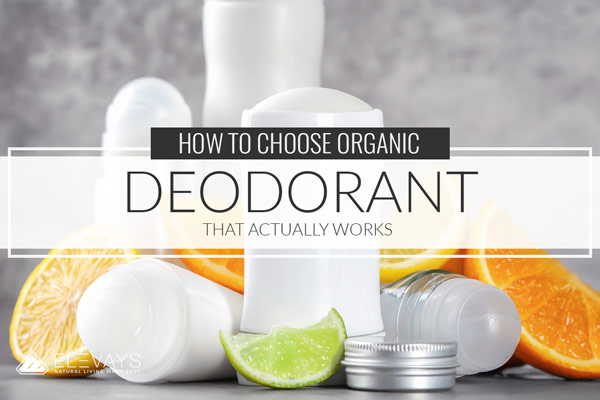
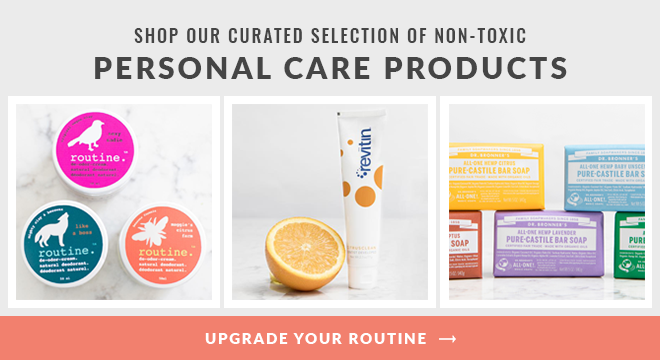
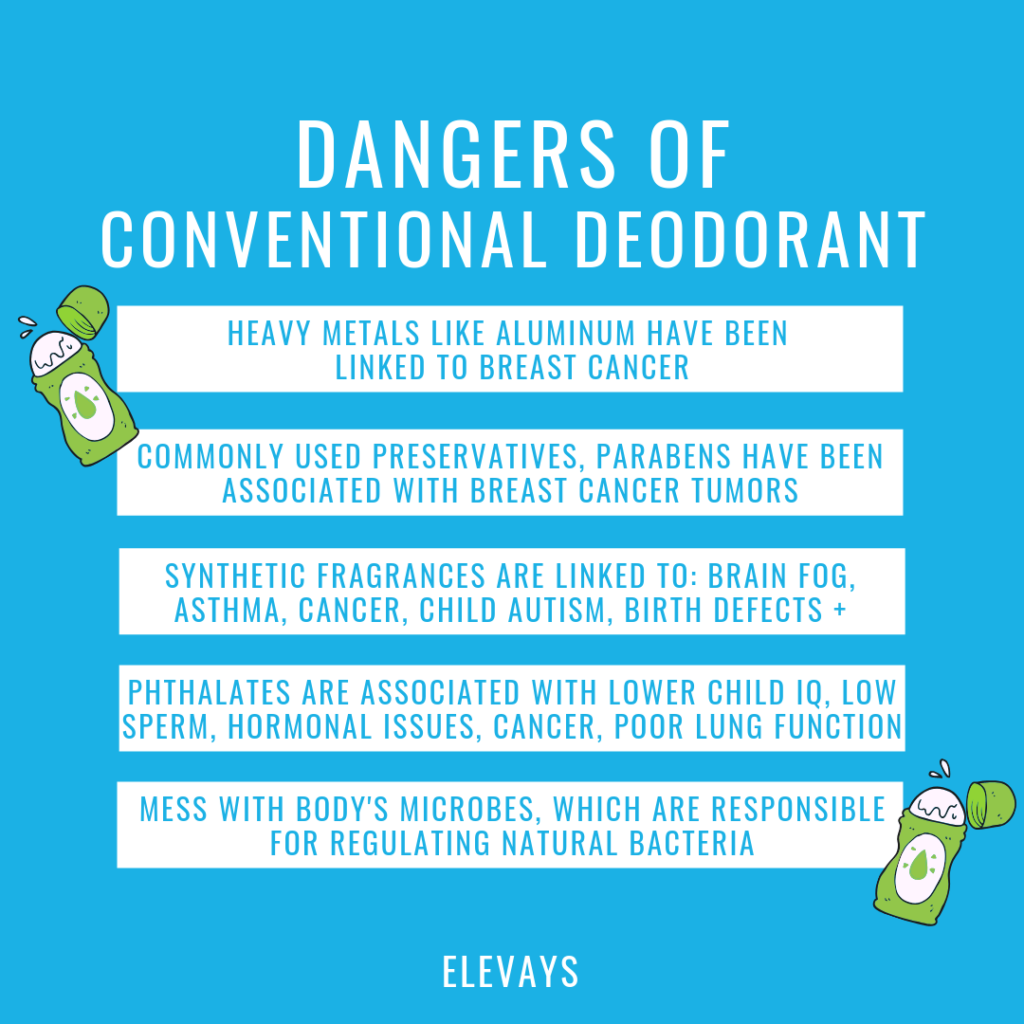




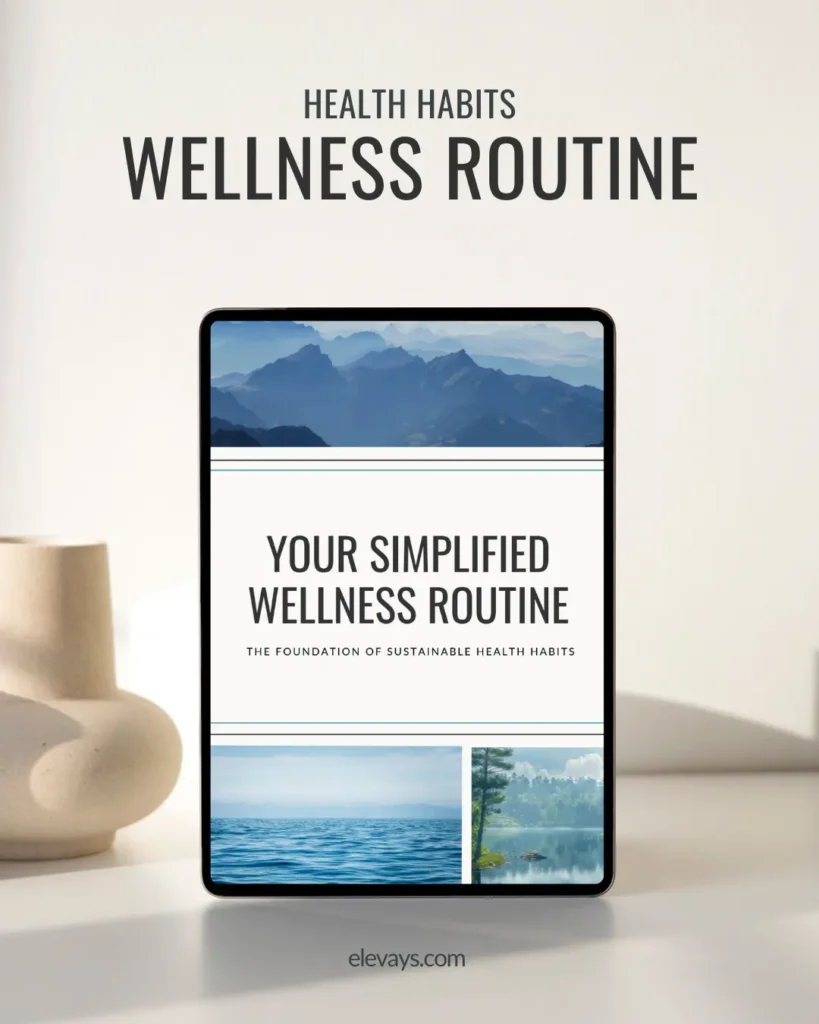

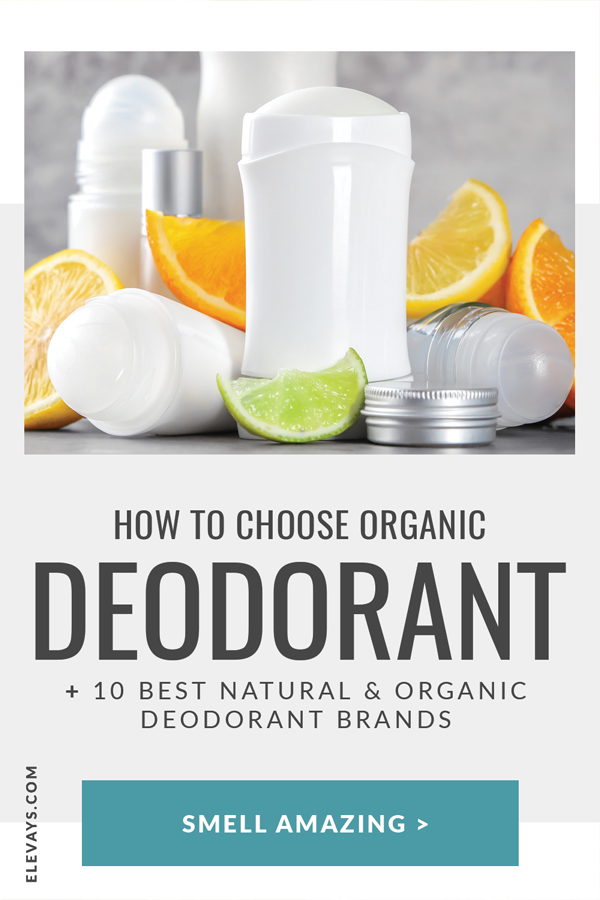
Great article on deoderants and why what you use matters.
So glad you found it helpful Michael!